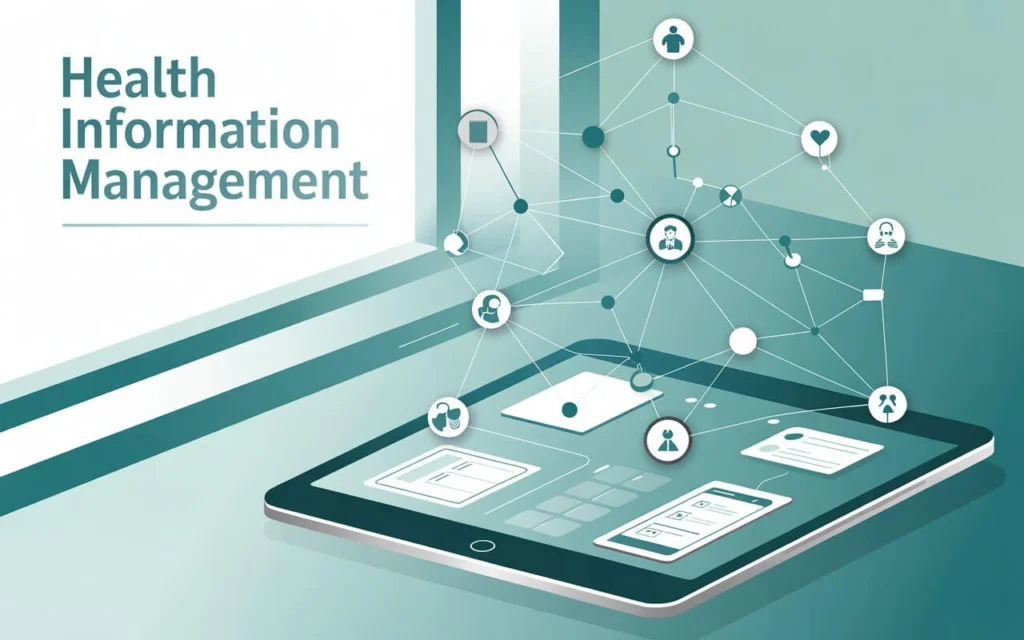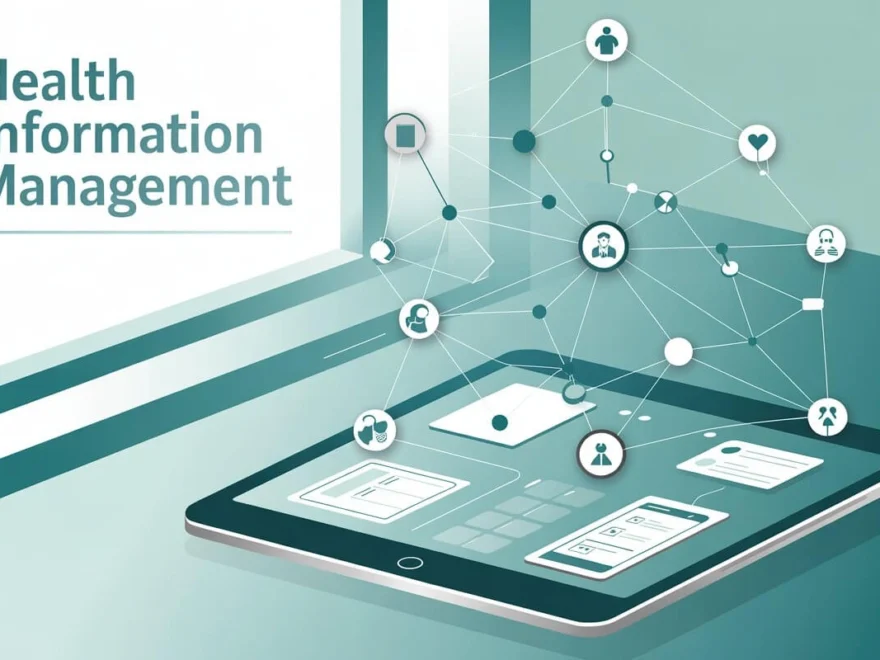In today’s data-driven world, health information management (HIM) is more essential than ever. With the healthcare industry relying heavily on electronic medical records (EMRs) and complex data systems, HIM professionals ensure the accuracy, privacy, and security of sensitive patient information. Their work is the backbone of modern medical operations—supporting clinical decisions, administrative processes, and regulatory compliance.

Content
Understanding Health Information Management
Health information management is the practice of collecting, analyzing, and protecting digital and paper-based patient health records. It involves maintaining healthcare systems and ensuring that data is accessible, confidential, and legally compliant.
A degree in health information management typically includes coursework in medical terminology, healthcare regulations, data analytics, and health information systems. It prepares students to manage medical records efficiently, use data for decision-making, and protect patient privacy in accordance with legal standards like HIPAA.
What Do HIM Professionals Do?
HIM professionals play a pivotal role in the healthcare ecosystem. Their responsibilities include:
- Organizing and managing electronic health records (EHRs) to ensure accuracy and completeness.
- Maintaining compliance with federal regulations, including HIPAA and CMS mandates.
- Safeguarding patient privacy through effective data security protocols.
- Facilitating insurance reimbursements by coding and billing medical procedures.
- Supporting clinical decision-making with high-quality health data analytics.
In many organizations, HIM professionals also collaborate with software developers, hospital administrators, compliance officers, and clinical teams to optimize health information systems.
For example, a Clinical Documentation Improvement (CDI) Specialist works with physicians to ensure accurate diagnosis coding, which directly affects billing and patient outcomes. Similarly, a Health Informatics Analyst might study EMR data to identify trends in chronic disease management, helping public health departments respond more effectively.
Is Health Information Management Right for You?
If you’re considering a career in HIM, ask yourself the following:
- Do you enjoy working with data and technology?
- Are you detail-oriented and highly organized?
- Are you interested in healthcare but not necessarily in direct patient care?
- Do you want a career with long-term growth, job stability, and impact?
- Are you comfortable working in both independent and collaborative environments?
You might be well-suited for this field if you like the idea of improving healthcare outcomes behind the scenes. HIM professionals enjoy a wide range of job settings, including hospitals, clinics, research organizations, insurance companies, and even tech firms working in healthcare innovation.
Earning a Health Information Management Degree
Pursuing a health information management degree is the first step toward entering this high-demand field. Many accredited institutions offer associate’s, bachelor’s, or master’s programs—often available online for added flexibility.
Core Subjects Covered:
- Medical coding and billing (ICD-10, CPT)
- Electronic medical records (EMRs)
- Health data analytics
- Information governance and compliance
- Healthcare finance and reimbursement systems
- Privacy and security regulations
Some programs prepare students for AHIMA certification, such as the Registered Health Information Administrator (RHIA) or Registered Health Information Technician (RHIT) credentials. These certifications enhance your credibility and broaden your career prospects.
Career Opportunities in HIM
As the volume of medical data increases, so does the need for professionals who can manage it effectively. According to the U.S. Bureau of Labor Statistics, employment for medical records and health information specialists is projected to grow faster than average through 2032.
Popular Job Titles Include:
- Health Information Technician
- Clinical Documentation Specialist
- Medical Records Manager
- Compliance Analyst
- Healthcare Data Analyst
- Health Informatics Consultant
- Coding Auditor
- Privacy and Security Officer
These roles are in demand across a range of industries:
- Hospitals and healthcare systems
- Health insurance companies
- Government agencies (e.g., CDC, HHS)
- Long-term care and rehabilitation centers
- Telemedicine and health tech startups
Salaries vary by role and experience, but many HIM careers offer competitive compensation, remote work flexibility, and advancement opportunities into leadership or informatics.
The Growing Importance of HIM
In an era of digital transformation, data security and privacy in healthcare is non-negotiable. Patients expect their health records to be protected, and healthcare providers depend on accurate data to make life-saving decisions.
HIM professionals:
- Ensure accurate recordkeeping for quality care.
- Provide insights through data analytics to improve outcomes.
- Help reduce costs by improving documentation and billing processes.
- Support healthcare systems in achieving compliance and interoperability.
For example, during public health crises like COVID-19, HIM professionals helped collect and organize patient data, track infection trends, and support contact tracing efforts—demonstrating the field’s essential role in national health initiatives.
Conclusion
Health information management is more than just managing medical records—it’s about enabling healthcare organizations to deliver better care, protect patient rights, and use data ethically and effectively. With rising demand, ongoing technological innovation, and a wide range of career paths, HIM is a smart choice for anyone interested in the intersection of health, data, and technology.
Frequently Asked Questions
What is health information management?
Health information management is the practice of organizing, analyzing, and protecting patient health data to support quality care, compliance, and efficiency in healthcare systems.
What degree do you need to work in HIM?
You typically need at least an associate’s or bachelor’s degree in health information management or a related field. Certifications like RHIT or RHIA are often required for advanced roles.

Arlene Ross is a health blogger who enjoys writing on her website. Arlene has always had an interest in medicine, and she hopes to become a doctor one day. She loves reading about medical discoveries, especially when they are for rare conditions that don’t have much research yet. She also likes exploring the science behind different diets and nutrition programs.













